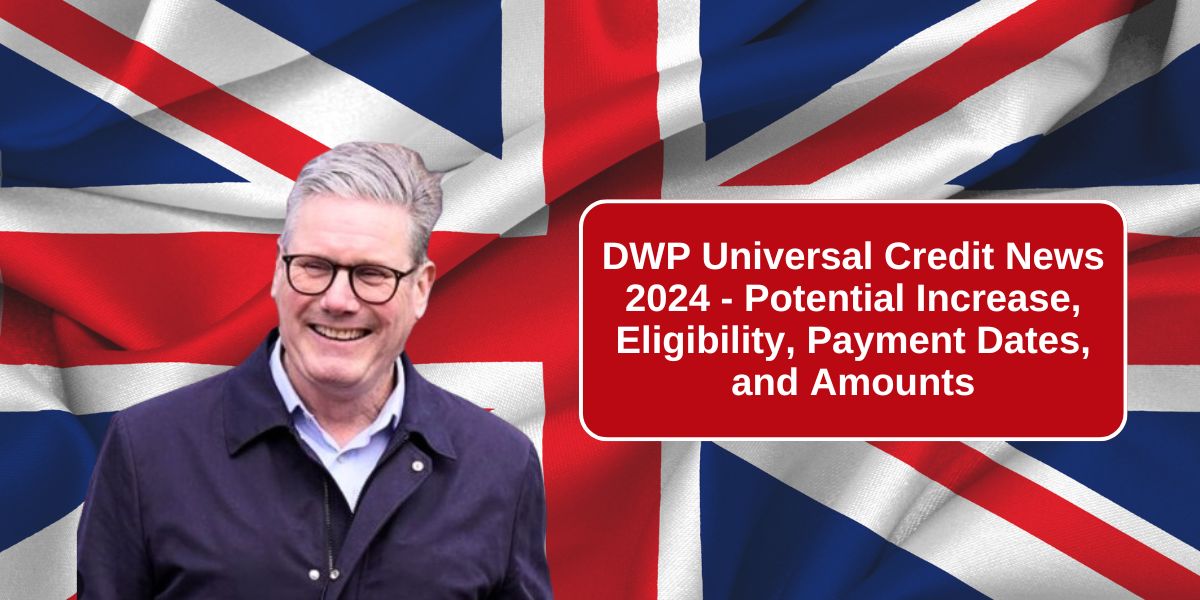In 2024, Universal Credit will undergo significant changes with a focus on supporting claimants in the face of rising living costs. This article explores the latest updates to Universal Credit including important dates and eligibility criteria. It also discusses payment amounts and future potential increases.
In April 2024 the UK benefit system experienced a 6.7% rise to help claimants keep up with inflation. The timing of the adjustment, however, has caused confusion and frustration for recipients as the cost of living continues to increase. Charities and advocacy groups stress the importance of providing Universal Credit claimants with more substantial and timely support.
Table of Contents
DWP Universal Credit Coming to UK Citizens
The DWP introduced a new measure of financial assistance to help individuals with debilitating conditions, especially those older than 55 who suffer from age-related macular disease. The condition can cause difficulty reading, recognizing people, driving, and recognizing faces. It also increases the risk of falling and injury.
| Oas Payments |
| Veterans Stimulus Check 2024 |
| Hyundai Kia Class Action Lawsuit 2024 |
| Bank Of America Settlement 2024 |
| Capital One Class Action 2024 |
Issues
Advocate groups claim that the current system is flexible, but leaves many vulnerable people in precarious circumstances, as they struggle to pay for essentials. Over 100 groups, including the Joseph Rowntree Foundation, Big Issue, and others, support a Universal Credit that includes essentials. This guarantee will ensure that recipients are able to afford the basic necessities and provide a more secure level of financial assistance.
How to claim the DWP payment
You will need to complete an online application form if you are eligible. What you’ll need is:
- Email address and phone number so that you can be reached and verified.
- Bank details: Details about your bank, building societies, or credit accounts to receive payment.
- Income information: Information about your income, including details of what you earn from work, savings, and investments, as well as other benefits.
- Housing information: Details about your housing situation including details of rent and landlord.
Dates
Universal Credit is based on a monthly assessment, unlike most other benefits. The payments are calculated and distributed monthly. The assessment period that begins on 26 March and ends on 25 April will determine the payment you receive on 2 May. Many recipients are wondering why it took so long for the increase to go into effect. Some beneficiaries will notice the changes by July, while others may not.
Eligibility
In order to receive the new Universal Credit rates, claimants need to meet certain criteria.
- The applicant must be a UK resident.
- Universal Credit is available to those with low incomes who struggle to meet their basic needs.
- The claimant must be under the age of 66 and at least 18 years.
- Eligible are those who are either unemployed or working or are unable to do so due to a severe disability or illness.
- To qualify, your income and assets must not exceed 16,000 francs.
The UK Government’s official website has a benefits calculator that can be used by individuals who are unsure of their eligibility.
Amount
The Department for Work and Pensions has asked for a review of the timing and management of payments in order to provide quicker adjustments for those who are in need. In the next month, claimants will receive new rates with an increase of £470.
The actual amount of support that recipients receive is reduced by automatic deductions made by the DWP. These deductions can cause them to lose over £1 billion a year. Advocacy groups continue their push for immediate and substantial adjustments to ensure all recipients are able to adequately cover their daily expenses.
Possible Increase
Universal Credit is being pushed to increase as claimants get used to the new rates. This will help to align it with current living costs. The 6.7% rise was based on the September inflation rate, but current economic pressures indicate that this is not enough. According to the Joseph Rowntree Foundation, the standard allowance is around £30 per person per week or £120 per month less than needed to cover basic costs.
Individuals seeking extra support in August 2024 can turn to a variety of sources, including charitable organizations, councils locals, and community groups that provide additional aid, like food banks and counseling on finances. These resources are crucial in helping to bridge the gap until the new benefits rates take full effect. It is important that recipients are aware of their entitlements, and they seek out resources to manage their finances in this transitional phase.
Staying up to date on Universal Credit and being aware of eligibility and support options will help claimants better navigate through these difficult times.
FAQs
When will the new rates come into effect?
By July 2024, some will have seen changes.
Who can apply for Universal Credit?
Residents of the UK with low income aged 18-66.
What is the new Universal Credit?
A rise of £470 can be expected.






